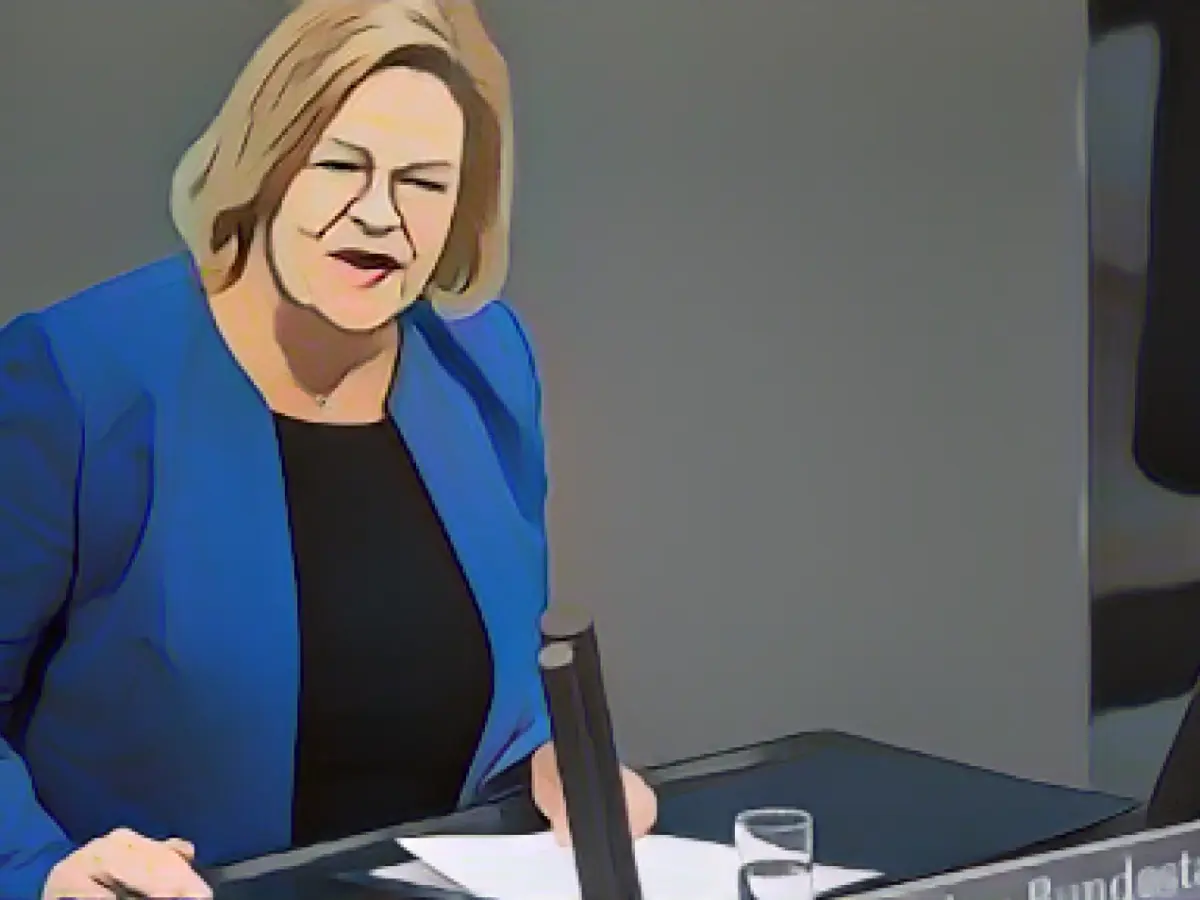Domestic Policy in Action: A Look at Germany's Interior Ministers' Conference
In the wake of the ongoing Middle East conflict, Germany's interior ministers are grappling with a unique set of challenges related to pro-Palestinian demonstrations. These events, while exercising the right to freedom of expression, can sometimes escalate into instances of hate speech and propaganda against Israel and Jews. Berlin's Senator of the Interior, Iris Spranger, has made it clear that such behavior is not only unacceptable but also will be met with all constitutional means available.
The global security situation has seen a significant deterioration, posing a direct threat to Germany. The rising tide of terrorism is a major concern, as police forces focus on safeguarding Christmas markets and the European Football Championship 2024. The fight against terrorism is the second primary focus for the three-day Conference of Interior Ministers in Berlin.
In the face of this increased threat level, particularly from Islamic extremism, Federal Interior Minister Nancy Faeser has emphasized the need for vigilance. She underscores the importance of closely monitoring Islamist threats and preventing further radicalization processes in Germany.
The border controls introduced by Faeser in mid-October have garnered support from several interior ministers, including Bavaria's Joachim Herrmann. The controls at Germany's borders with Poland and the Czech Republic have been deemed successful in deterring illegal activity and apprehending criminal smugglers. Herrmann argues that ending these controls would send the wrong message to potential criminals.
The Conference of Interior Ministers is also expected to address other pressing issues. These include the management of violent soccer fans, the fight against increasing violent crime, and sexualized depictions of violence against children through artificial intelligence. Additionally, the reversal of the burden of proof in the confiscation of criminals' assets will be discussed.
In light of the global security situation, the protection of German citizens is a top priority for the interior ministers, who must navigate the delicate balance between upholding civil liberties and ensuring national security.
Relevant Enrichment Insights
The German government's approach to countering terrorism and pro-Palestinian demonstrations involves a combination of legislative measures, police actions, and public safety improvements. Critics, however, have raised concerns regarding the impact of the government's stance on civil liberties and human rights.
- Pro-Palestinian Demonstrations:
- Police Actions: German authorities have had to contend with pro-Palestinian demonstrations, which at times have led to disruptions and incidents of hate speech against Israel and Jews. The police have intervened to maintain order, arresting protesters and halting disruptive activities.
- Legal and Political Criticism: Numerous scholars and legal experts have raised concerns about the suppression of free expression and academic freedom suppressed in relation to these demonstrations. A controversial antisemitism resolution passed by the German Parliament has been criticized for potentially stifling open criticism of Israeli policies.
- Human Rights Concerns: Human rights and civil society groups have urged the United Nations to respect human rights while addressing antisemitism. They emphasize the need to ensure a balance between protecting civil liberties, such as freedom of speech and peaceful assembly, and combating hate speech and incitement.
- Terrorism Threats:
- Legislative Measures: The German government has strengthened its legislation against foreigners accused of terrorism-related crimes. A draft law approved in 2024 aims to simplify deportation proceedings for individuals who advocate or support terrorist acts.
- Counter-Terrorism Efforts: Germany has participated in international efforts to combat terrorism. This includes military operations and intelligence sharing to prevent and respond to terrorist threats. German troops are currently involved in missions in Afghanistan and Mali.
- Salafist Influence: The presence of Salafism in Germany poses a significant challenge to authorities. This radical Islamic ideology is often linked to jihadist recruitment and has led to the banning of certain groups, such as "Die Wahre Religion" (The True Religion).
- Public Safety Measures: Following incidents of deadly violence, such as the stabbing spree in Solingen and the attack in Mannheim, the government has increased public safety measures and surveillance. These efforts aim to prevent further attacks and protect the general public.








